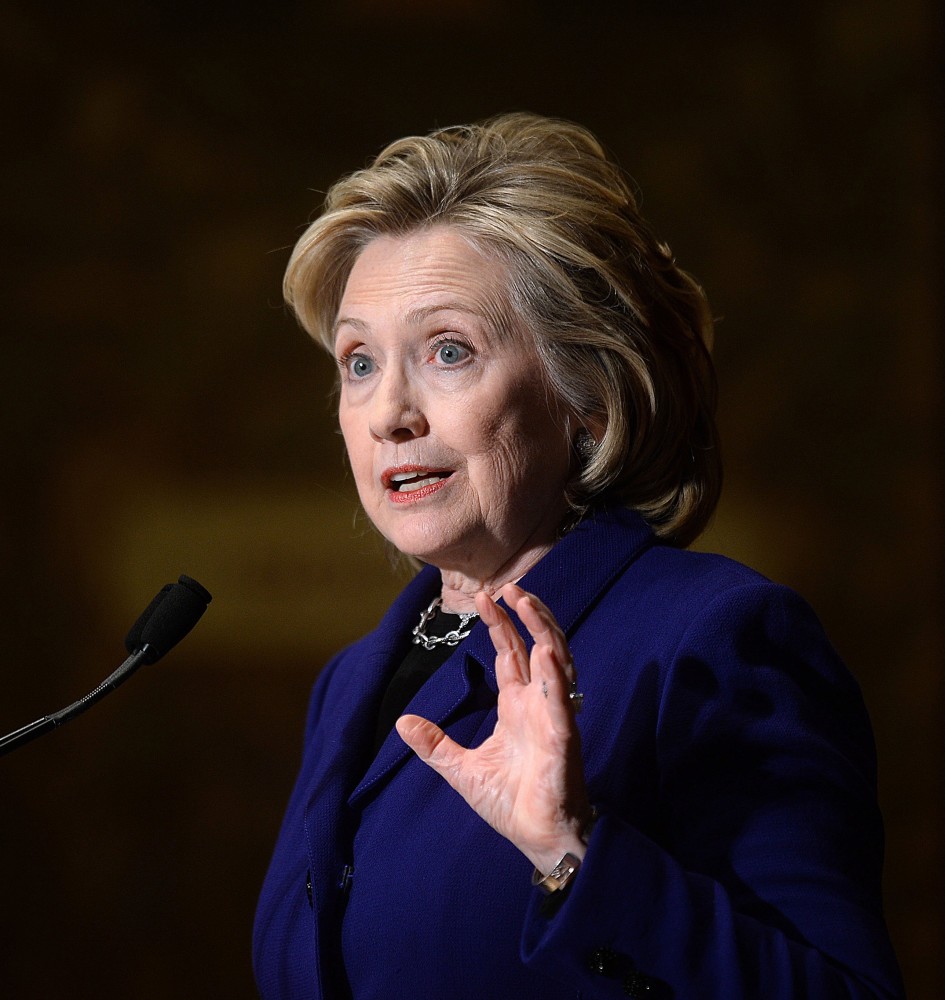By Chuck Raasch
St. Louis Post-Dispatch.
WASHINGTON
It’s complicated between Hillary Clinton and women.
That complexity was unavoidable for the first female to seriously challenge for a presidential nomination in two election cycles — a former first lady, senator, secretary of state and, for over a quarter century, a nationally known champion of left-leaning causes and foe of what she once described as a “vast, right-wing conspiracy.”
If large majorities of Americans continue to believe the country is on the wrong track, will more women see Clinton as a change agent, or as the survivor and insider of a politics they want to get beyond?
Twenty women — 10 Republicans in Bedford, N.H., and 10 Democrats in Des Moines, Iowa — pondered those questions this week.
All 20 have children under 18 at home and shop at Wal-Mart stores at least once a month.
Wal-Mart has sponsored these “WalMart Moms” focus groups for five years. Republican pollster Neil Newhouse, who organizes them with Democratic pollster Margie Omero, pointed out that Americans have told pollsters for about a dozen years that the country is on the wrong track, one of the longest negative stretches in the history of public opinion.
The insights and raw emotions of the two women’s focus groups provided a human window into that poll statistic. Their insights should be a cautionary note for the Clinton campaign, and for those making predictions about the 2016 presidential election.
The struggles of living in today’s economy dominate these women’s lives.
Even women who would be considered solidly middle class spoke passionately and constantly of the challenges of paying higher medical and food bills; the enduring drag of paying college loans well into parenting years; and the worry about being able to pay for their children’s college educations.
Christine (the organizers did not give last names), a homemaker from New Hampshire whose family makes between $75,000 and $100,000, says she often finds herself “sobbing” when she pays the family’s bills. Another New Hampshire homemaker, Andrea, said she turned that job over to her husband because it was giving her ulcers.
Christine supports Sen. Ted Cruz, R-Texas, for president, but admits she could easily switch, and says she is looking for something totally different in the next president.
“We’ve had eight years of really smooth talking,” she said, referring to President Barack Obama, “and maybe we just want a real person.”
Is Hillary Clinton that “real person” to women? Opinions in these focus groups ran the gamut. Even among Democrats, feelings were not universally favorable toward the Democratic presidential front-runner.
Annnete, a divorced mother who is between 45 and 54 years old, supports Clinton. But, she added: “I don’t think she cares about the normal people as much as Obama.” Carmen, a certified nursing assistant in the 25-34 age group, said she supported Sen. Bernie Sanders of Vermont. As further testament to the middle-class squeeze, Carmen criticized Clinton for proposing to raise the federal minimum wage.
“I can’t stand the thought of someone working at McDonald’s making $2 an hour less than I do,” Carmen said. (Sanders also supports a higher minimum wage.)
In the fully engaged presidential campaign, Clinton’s accumulation of a quarter century of what one Democrat woman described as “baggage” makes her unique as potentially the first female president.
No recent presidential candidate has been as first-name familiar and as involved in as many controversial issues for as long as Hillary Clinton has. If Marco Rubio is the Republican nominee — and more women in the Republican focus group chose the Florida senator as someone they could support than any other GOP candidate — the contrast will be stark.
Rubio was 22 when Clinton launched an unsuccessful attempt to reform health care in 1993. She has been globally known, and universally controversial, for most of Rubio’s entire adult life.
There is no lack of opinion on Clinton among women. In one-word descriptions, the Democratic focus group women offered “intelligent,” “strong” and “confident,” but also “shady” and “shifty” and — in what may be the most problematic word of all for any politician in an era of reviled status quo — “insider.”
In September, Clinton said this about her candidacy:
“I can’t think of anything more of an outsider than electing the first woman president, but I’m not just running because I would be the first woman president.”
If these focus groups proved one thing, it is that women — including Democrats who support her — view Clinton as an insider.
And that the distance between inside and outside is as great as it has ever been.














































































































































































































































































































































































